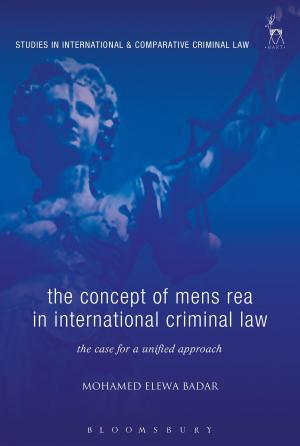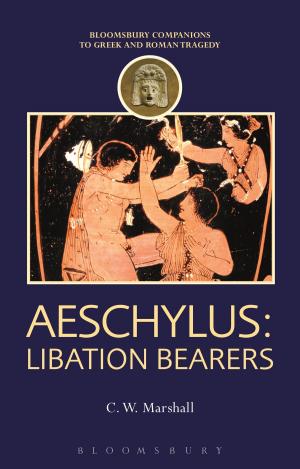Art and Psychoanalysis
Nonfiction, Health & Well Being, Psychology, Child & Adolescent, Adolescent Psychology, Art & Architecture, General Art| Author: | Maria Walsh | ISBN: | 9780857732798 |
| Publisher: | Bloomsbury Publishing | Publication: | November 20, 2012 |
| Imprint: | I.B. Tauris | Language: | English |
| Author: | Maria Walsh |
| ISBN: | 9780857732798 |
| Publisher: | Bloomsbury Publishing |
| Publication: | November 20, 2012 |
| Imprint: | I.B. Tauris |
| Language: | English |
Often derided as unscientific and self-indulgent, psychoanalysis has been an invaluable resource for artists, art critics and historians throughout the twentieth century and numerous encounters between art and psychoanalysis have sparked illuminations and connections that would otherwise have remained dormant.
Art and Psychoanalysis investigates these encounters. The shared relationship to the unconscious, severed from Romantic inspiration by Freud, is traced from the Surrealist engagement with psychoanalytic imagery to the contemporary critic's use of psychoanalytic concepts as tools to understand how meaning operates. Following the theme of the 'object' with its varying materiality, Walsh develops her argument that psychoanalysis, like art, is a cultural discourse about the mind in which the authority of discourse itself can be undermined, provoking ambiguity and uncertainty and destabilising identity.
The dynamics of the dream-work and the complexity of translation in the work of Odilon Redon and Susan Hiller leads to Freud's 'familiar unfamiliar' mapped on to the home and female body in the recently-resurgent Louise Bourgeois. Fetishism in the works of 1980s postmodernists, challenges to visual mastery in the appropriation art of Barbara Kruger, and the masquerade strategies of female artists as defying Freudian notions of sexual desire illustrate the varying self-awareness and resistance in art's relationship with psychoanalysis. Abjection and the return of the body to art, repetition compulsion and the death drive in post-minimalist sculpture, and the oscillation between healing and rupture in the work of Marina Abramovic and Lygia Clark come together to develop an ethics of art in which subject and object are reconfigured as partial and provisional entities outside the authority of the ego.
Innovative and disturbing, Art and Psychoanalysis investigates key psychoanalytic concepts to reveal a dynamic relationship between art and psychoanalysis which goes far beyond interpretation. There is no cure for the artist – but art can reconcile us to the traumatic nature of human experience, converting the sadistic impulses of the ego towards domination and war into a masochistic ethics of responsibility and desire.
Often derided as unscientific and self-indulgent, psychoanalysis has been an invaluable resource for artists, art critics and historians throughout the twentieth century and numerous encounters between art and psychoanalysis have sparked illuminations and connections that would otherwise have remained dormant.
Art and Psychoanalysis investigates these encounters. The shared relationship to the unconscious, severed from Romantic inspiration by Freud, is traced from the Surrealist engagement with psychoanalytic imagery to the contemporary critic's use of psychoanalytic concepts as tools to understand how meaning operates. Following the theme of the 'object' with its varying materiality, Walsh develops her argument that psychoanalysis, like art, is a cultural discourse about the mind in which the authority of discourse itself can be undermined, provoking ambiguity and uncertainty and destabilising identity.
The dynamics of the dream-work and the complexity of translation in the work of Odilon Redon and Susan Hiller leads to Freud's 'familiar unfamiliar' mapped on to the home and female body in the recently-resurgent Louise Bourgeois. Fetishism in the works of 1980s postmodernists, challenges to visual mastery in the appropriation art of Barbara Kruger, and the masquerade strategies of female artists as defying Freudian notions of sexual desire illustrate the varying self-awareness and resistance in art's relationship with psychoanalysis. Abjection and the return of the body to art, repetition compulsion and the death drive in post-minimalist sculpture, and the oscillation between healing and rupture in the work of Marina Abramovic and Lygia Clark come together to develop an ethics of art in which subject and object are reconfigured as partial and provisional entities outside the authority of the ego.
Innovative and disturbing, Art and Psychoanalysis investigates key psychoanalytic concepts to reveal a dynamic relationship between art and psychoanalysis which goes far beyond interpretation. There is no cure for the artist – but art can reconcile us to the traumatic nature of human experience, converting the sadistic impulses of the ego towards domination and war into a masochistic ethics of responsibility and desire.















